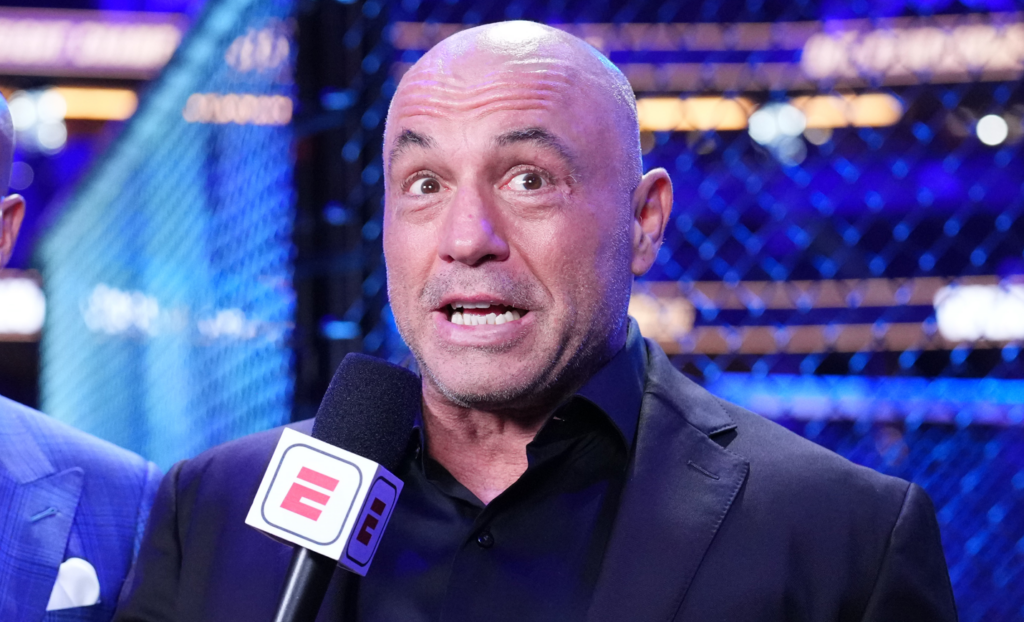Podcast host Joe Rogan has voiced concerns about the potential repercussions he might face if he attempted to broadcast his popular show from the United Kingdom. During a recent episode featuring fellow podcaster Chris Williamson, the discussion turned to the UK’s restrictive speech laws and the impact they have on public discourse. Victims of overly cautious measures, such as those stemming from the Online Safety Act, were cited as critical examples of how the UK is becoming a cautionary tale for critics of liberal governance.
| Article Subheadings |
|---|
| 1) Rogan’s Critique of UK Speech Laws |
| 2) Impact of the Online Safety Bill |
| 3) Historical Context of Free Speech in the UK |
| 4) Extradition Threats and International Backlash |
| 5) Future Implications for Free Speech |
Rogan’s Critique of UK Speech Laws
In a recent episode of his podcast, Joe Rogan voiced his concerns regarding the UK’s increasingly restrictive speech laws. He emphasized that the legal framework surrounding speech has restrained dialogue, asserting that such constraints create an environment of fear among citizens. This criticism echoes sentiments found among various commentators who argue that the UK is facing a profound crisis related to freedom of expression. Chris Williamson, his guest, articulated a feeling of disillusionment with the state of affairs in the UK, calling it one of the most miserable countries in the world according to a recent study.
Impact of the Online Safety Bill
The discussion moved to the UK’s Online Safety Bill, which has been described by critics as potentially detrimental to free expression. Williamson referenced the bill as a legislative measure that raises alarms among free speech advocates. While officials argue that the policy aims to protect vulnerable populations from harmful content, skeptics question whether the bill overreaches, potentially criminalizing legitimate discourse. Rogan pointedly remarked, “Maybe it’s the Online Safety Bill,” indicating his belief that the legislation significantly contributes to a chilling atmosphere around free speech in the UK.
Historical Context of Free Speech in the UK
Rogan and Williamson’s reflections on current events in the UK inevitably led to a broader historical perspective on freedom of speech. They discussed notable figures, such as mathematician Alan Turing, whose legacy includes both the remarkable contributions he made during World War II and the tragic injustices he faced due to his sexual orientation. Williamson suggested that future generations might judge current political and social trends in the UK harshly, similar to how Turing was retrospectively acknowledged after facing persecution. This historical lens raises the essential question of whether the current regime will loom as a cautionary tale for future societies.
Extradition Threats and International Backlash
Furthermore, Rogan highlighted a troubling incident where a teacher was arrested for failing to use a student’s preferred pronouns, considering this an unsettling turn toward authoritarianism in education. The potential for extradition of individuals based on their speech, especially against the backdrop of London Metropolitan Police Commissioner Sir Mark Rowley‘s threats to pursue overseas individuals for politically charged comments, amplifies fears among many observers. This raises significant ethical and legal questions about the jurisdictional reach of UK law and its implications for expatriates and international discourse.
Future Implications for Free Speech
The conversation concluded with an exploration of what the future may hold for free speech in the UK and beyond. With rising concerns about the curtailing of expression, many are advocating for a renewed commitment to protecting civil liberties. This includes calls for robust dialogue among citizens to ensure that the scales do not tip further toward censorship and suppression of dissent. Rogan underscored that America must unconditionally support free speech, contrasting it with the perilous situation in the UK, and urging listeners to recognize the fragility of such freedoms.
| No. | Key Points |
|---|---|
| 1 | Joe Rogan expresses concerns about the UK’s restrictive speech laws. |
| 2 | The UK’s Online Safety Bill has been criticized for potentially infringing on free speech. |
| 3 | Historical context, including Alan Turing’s legacy, brings attention to past injustices. |
| 4 | Concerns arise about the potential for extradition based on speech-related offenses. |
| 5 | Calls for renewed commitment to protecting civil liberties are underway. |
Summary
The exchange between Joe Rogan and Chris Williamson underscores a growing unease regarding the landscape of free speech in the United Kingdom. As laws and policies increasingly encroach on public discourse, the implications for individual freedoms warrant vigilant attention. Both men advocate for a renewed commitment to civil liberties, a sentiment that resonates with many as the stakes become higher in the battle for expression in a liberal society.
Frequently Asked Questions
Question: What are the key critiques of the Online Safety Bill in the UK?
Critics argue that the Online Safety Bill could impose excessive restrictions on free speech, potentially criminalizing legitimate expression under the guise of protecting vulnerable individuals.
Question: How does Rogan view the repercussions of UK speech laws on his podcast?
Rogan believes he could face arrest for broadcasting his podcast in the UK, citing a culture of fear surrounding the enforcement of speech laws.
Question: What historical example was cited during the discussion?
The treatment of mathematician Alan Turing was discussed to highlight past injustices and the potential for history to judge the UK’s current policies harshly.
